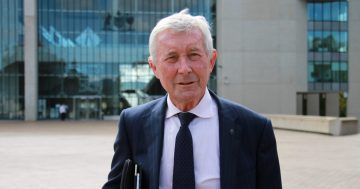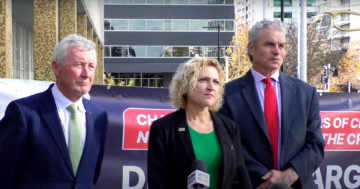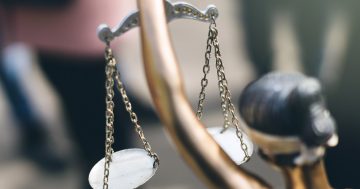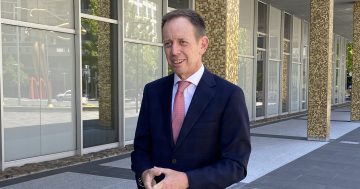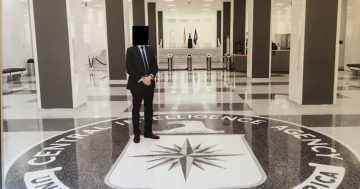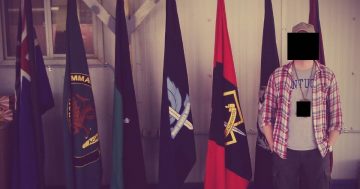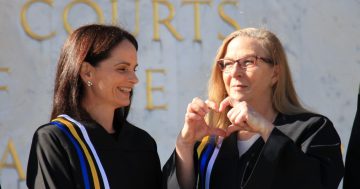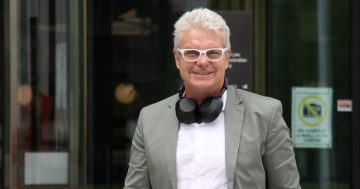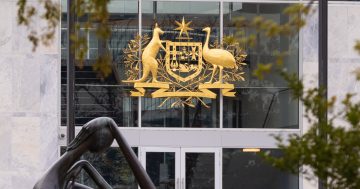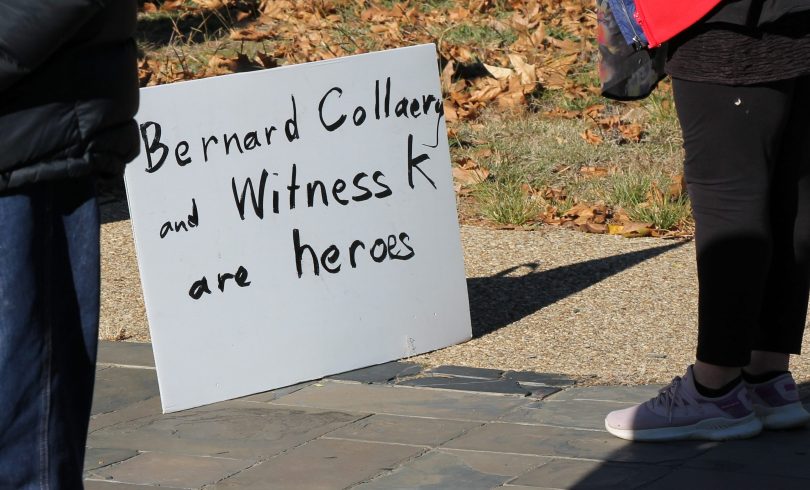
A protest sign in support of Witness K and Bernard Collaery outside the ACT Courts in 2021. Photo: Albert McKnight.
The federal government has succeeded in its attempt to have a judge receive “court only evidence” in the case against Bernard Collaery, which is secret information the whistleblower and his lawyers cannot view.
In February, the ACT Supreme Court heard arguments over whether or not Justice David Mossop should look at certain information provided by the Attorney-General and have the contents of this information kept secret from Mr Collaery.
Tim Begbie QC, for Attorney-General Michaelia Cash, said the “court only evidence” was not evidence in the substantive proceedings against Mr Collaery, nor was it information denied to him for use in his defence.
On Friday (11 March), Justice Mossop said it was in the “interests of national security” to make an order allowing the Attorney-General to rely on the material.
“The evidence of the deponents [people who make an affidavit] and my inspection of the material indicates the need for its confidentiality,” he said.
“The nature of the information and its relationship with information disclosed in the confidential affidavits is such that the risk of inadvertent disclosure by his [Mr Collaery’s] lawyers is significant.”
Justice Mossop said the “court only evidence” would be relied on by the Attorney-General to help decide the extent to which the trial will be conducted in public.
He said a special counsel, a security-cleared person outside Mr Collaery’s legal team permitted to represent his interests over the material, could be appointed to “reduce the disadvantage” to him and allow for any potential objections to the admissibility of the evidence.
“Plainly, the making of orders sought by the Attorney-General involves a qualification upon the rights of the defendant,” Justice Mossop said.
“However, the making of such an order is the best accommodation of the competing private and public interests in the circumstances of this case.”
He said the admission of the evidence and the process to appoint a special counsel would further delay the trial.
Mr Collaery was the lawyer for Witness K, who blew the whistle about Australian intelligence services bugging the Timor-Leste cabinet room during 2004 discussions over the Timor gas treaty.
He is fighting charges alleging he breached the Intelligence Services Act by providing information from the Australian Secret Intelligence Service to ABC journalists and that he conspired with his former client to give such information to the Timor-Leste Government.
Witness K was sentenced last year.












